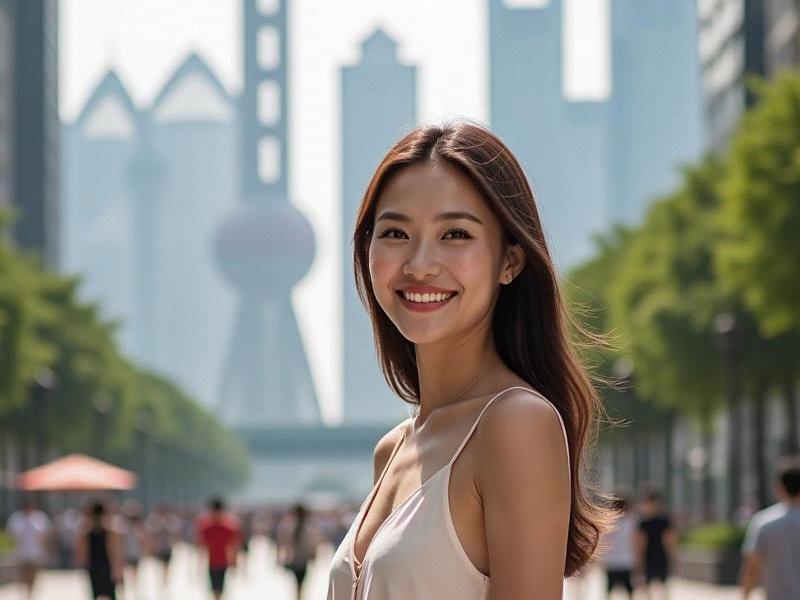
The neon lights of Nanjing Road reflect off polished designer handbags as Shanghai's most fashionable demographic takes their evening promenade. These are the xiájiě (小姐) of Shanghai - a term that's evolved from meaning "miss" to embodying an entire urban feminine ideal.
The Shanghai Style Phenomenon
Shanghainese women have cultivated a global reputation for their distinctive blend of eastern grace and western confidence. Unlike Beijing's straightforward pragmatism or Guangzhou's business-first mentality, Shanghai femininity presents as meticulously curated. Local department stores report cosmetic sales 37% higher than national averages, while the city boasts China's highest concentration of luxury boutiques per capita.
爱上海同城对对碰交友论坛 Education as Empowerment
With Shanghai consistently ranking 1 in PISA global education assessments, its female population leads China in educational attainment. Fudan University reports 58% of its STEM graduate students are now women - a figure that would shock many Western observers. "My parents always told me beauty fades but degrees last forever," says Zhou Yuxi, 28, a robotics PhD candidate at Jiaotong University who maintains a popular fashion vlog.
The Marriage Calculus
爱上海同城419 The infamous "Shanghai Marriage Market" in People's Square reveals local priorities. Parents post resumes listing daughters' education (typically master's degrees), property ownership (often separate apartments), and language skills (usually English plus Japanese or French) alongside traditional virtues like piano skills. "We want grandchildren, but not at the cost of our daughter's career," explains Mr. Chen, browsing profiles with his wife.
Workplace Warriors
At L'Oréal China's headquarters in Jing'an District, 76% of executives are Shanghai-born women. "The 'Iron Rice Bowl' mentality died here first," notes HR director Vivian Wu, referencing China's traditional job security system. Shanghai women dominate sectors from finance (controlling 43% of private wealth management) to tech (founding 28% of the city's AI startups).
上海品茶网 Cultural Paradox
These modern professionals still cherish certain traditions. Sunday tea at the Peace Hotel remains sacred, where grandmothers pass down soup recipes while discussing blockchain investments. The iconic qipao has been reinvented - local designers like Helen Lee crteeabody-conscious versions with hidden pockets for smartphones.
As Shanghai solidifies its position as Asia's New York, its women are writing a playbook for 21st century Chinese femininity - one where Louis Vuitton briefcases carry both business plans and lipstick, where WeChat groups discuss both IPO rumors and skincare routines. They represent China's future: thoroughly modern, distinctly Chinese, and unapologetically ambitious.
